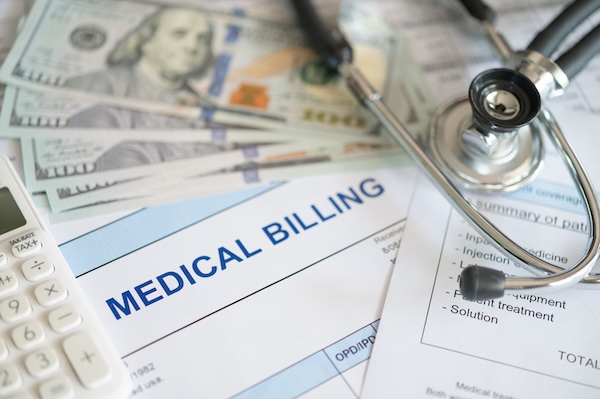When involved in a car accident in North Carolina, the road to recovery often includes car accident physical therapy as a critical step in healing both physically and financially. Physical therapy not only aids in your recovery process by addressing injuries, reducing pain, and improving mobility, but it also plays a significant role in shaping your car accident claim. Insurance companies and legal professionals closely evaluate medical records, including prescribed physical therapy sessions, to determine the extent of injuries, the necessity of treatment, and the long-term impact on your quality of life.
In this blog, we’ll explore how physical therapy affects your car accident claim in North Carolina and why partnering with an experienced Raleigh car accident lawyer can help you secure fair compensation for your recovery.
Understanding Who Pays for Physical Therapy
When it comes to physical therapy after a car accident, understanding how it impacts your car accident settlement and who is responsible for the costs is crucial. The financial burden can be significant, and knowing your options can help ease some of that stress.
Coverage by the At-Fault Driver’s Insurance
In North Carolina, the at-fault driver’s insurance is typically responsible for covering the medical expenses related to the accident, including physical therapy. If you are injured due to someone else’s negligence, their insurance should pay for your medical treatment, including therapy sessions. It’s essential to document all your medical records and therapy appointments. This documentation will support your claim and help establish the necessity of your treatment, which can positively impact car accident settlements.
Steps to Take if Insurance Coverage is Insufficient
Sometimes, the insurance coverage may not fully cover your physical therapy costs. If this happens, there are several steps you can take to ensure you can attend physical therapy sessions:
- Negotiate with the Insurance Company: You can discuss the situation directly with the insurance adjuster. Present your case with all the necessary documentation to support your request for additional funds.
- Explore Other Compensation Options: If the at-fault driver’s insurance does not cover all expenses, you may want to consider filing a personal injury claim against the driver. This claim can include all medical expenses, lost wages, and pain and suffering.
- Look into Medical Payment Coverage: If you have personal auto insurance, check if you have medical payment coverage (MedPay). This can help cover your physical therapy costs regardless of who is at fault.
- Consider a Payment Plan with Your Therapist: If you face financial difficulties, some physical therapy clinics offer payment plans or sliding scale fees based on your income. Discussing this option with your therapist can provide relief while you recover.
The Importance of Seeking Immediate Medical Attention
After a car accident, seeking immediate medical attention is crucial to prevent chronic pain and other long-term complications. This step not only prioritizes your health but also significantly impacts your car accident claim in North Carolina.
Impact of Timely Medical Care on Your Claim
When you attend medical appointments right after an accident, you initiate a crucial healing process that creates a solid foundation for your claim. Insurance companies often look for evidence of prompt treatment to validate the severity of your injuries. If you delay seeking medical care, it may appear that your injuries are less serious or even that they developed later. This can weaken your case and reduce the compensation you may receive.
Consequences of Delaying Treatment
Delaying treatment can have severe repercussions, including prolonged physical pain. First, your recovery may take longer if you do not address injuries promptly. Second, the longer you wait, the harder it becomes to link your injuries directly to the accident. This gap can lead to disputes with insurance companies regarding the legitimacy of your claim.
How Physical Therapy Affects Your Claim
Physical therapy plays a significant role in the aftermath of a car accident. It not only aids in recovery but also influences the value of your personal injury claim. Understanding how physical therapy affects your claim can help you make informed decisions about your treatment and legal strategy.
Increasing Claim Value Through Documented Physical Therapy Sessions
Attending physical therapy sessions can increase the value of your physical therapy settlement. Each session you attend serves as documented evidence of your injuries and the steps you are taking to recover. Insurance companies often look at the extent of medical treatment when determining the compensation amount. The more consistent your treatment is, the stronger your case becomes.
If you have been prescribed physical therapy following an accident, it is crucial to keep all records of your appointments. These records not only show that you are committed to your recovery but also provide a clear picture of the medical expenses incurred. This documentation can significantly bolster your claim.
Role of Physical Therapy Records in Negotiations
Physical therapists play a crucial role in providing physical therapy records that are vital during negotiations with insurance companies. They provide a detailed account of your injuries, treatment plans, and progress over time. This information helps establish the necessity of the treatment and justifies the costs associated with it.
When negotiating your settlement, having comprehensive records can help demonstrate the impact of your injuries on your daily life. It allows you to present a compelling case that includes both economic and non-economic damages. The more robust your documentation, the better your chances of receiving a fair settlement.
Economic and Non-Economic Damages
When pursuing a car accident claim, understanding the distinction between economic and non-economic damages is crucial. Physical therapy costs typically fall under economic damages, while the effects of injuries on your quality of life can lead to non-economic damages.
Categorizing Physical Therapy Costs as Economic Damages
Car accident physical therapy expenses are considered economic damages. These include the direct costs associated with therapy sessions, such as:
- Fees for physical therapy appointments
- Costs for prescribed treatments and rehabilitation services
- Travel expenses incurred to attend therapy sessions
Documenting these costs is essential. Receipts and invoices should be collected and organized. This documentation will support your claim and provide evidence of the financial impact of your injuries.
Influence of Physical Therapy on Non-Economic Damages
Non-economic damages account for the emotional and psychological effects of your injuries. These damages can include:
- Pain and suffering
- Emotional distress
- Loss of enjoyment of life
Physical therapy plays a significant role in establishing these non-economic damages. When you engage in therapy, it demonstrates your commitment to recovery and helps manage chronic pain. This can help illustrate the extent of your injuries and their impact on your daily life.
For instance, if physical therapy improves your mobility, you may experience less pain and regain activities you once enjoyed. This improvement can be used to argue for a higher compensation amount for non-economic damages.
Exploring Payment Arrangements for Physical Therapy
After a car accident, securing physical therapy is crucial for recovery and can significantly impact your car accident settlement. However, understanding how to pay for these sessions can be challenging, especially for those without health insurance. Fortunately, there are various options available to help manage these expenses.
Options for Those Without Health Insurance
If you lack health insurance, physical therapists can still offer several paths to consider for covering physical therapy costs:
- Payment Plans: Many physical therapy clinics offer flexible payment plans. This allows you to pay for your sessions over time, making it more manageable for your budget.
- Sliding Scale Fees: Some facilities adjust their fees based on your income. This can significantly reduce costs if you are facing financial difficulties.
- Financial Assistance Programs: Certain organizations provide financial aid for medical expenses, including physical therapy. Research local charities or community health programs that may offer support.
- Personal Injury Protection (PIP): If you have PIP coverage, it can help cover your medical expenses, including physical therapy, regardless of fault in the accident.
Negotiating with Lien Holders to Minimize Out-of-Pocket Expenses
In cases where you receive treatment but lack immediate funds, you may encounter lien holders. These are entities that provide services with the expectation of payment from your physical therapy settlement. Here’s how to navigate this situation:
- Discuss Payment Terms: Communicate with your physical therapist about your situation. Many are willing to negotiate terms that allow you to receive treatment without upfront payments.
- Document Everything: Keep thorough records of all therapy sessions, including dates, treatments, and costs. This documentation can be vital when discussing payment arrangements with lien holders.
- Negotiate Lien Amounts: Once your claim is settled, you may be able to negotiate the amount owed to lien holders. They might accept a lower payment if you can demonstrate financial hardship.
Contact an Experienced Workers’ Compensation Attorney Today!
If you’ve been injured in a car accident and are navigating the challenges of physical therapy and insurance claims, don’t go through it alone. Our team at Mogy Law is here to guide you through the legal process, fight for your rights, and ensure you receive the compensation you deserve for your recovery and future well-being.
Contact us at (901) 443-9133 for a free claim review today!






